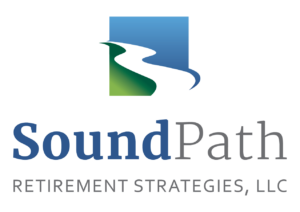Benjamin Koval offered insight to U.S. News & World Report and MSN for an article discussing the pros and cons of target-date funds. Are you properly diversifying your 401(k)?
An article recently published by U.S. News & World Report featured our own Benjamin Koval to compare the pros and cons of target-date funds. Target-date funds are a popular option for those who participate in employee-sponsored 401(k) plans, as they act as a “set-it-and-forget-it” option that shuffles and reallocates your investments based on your perceived risk tolerance.
Weighted with more risk in the beginning stages of your career and shifting to carry less risk as you get closer to retirement, they continually rebalance the ratio of stocks-to-bonds for investors. Benjamin touched on the positives of target-date funds, which include their low expense ratios. “Fees are an easily controllable source of risk and drag on performance,” he said.
Because the reallocation of target-date funds is automated, fees tend to be lower than actively managed funds. High fees can hinder the performance of your 401(k), especially in a large portfolio that relies on compounding. Even if an actively managed fund has a greater return, it’s possible for investors to see significant opportunity costs through smaller gains in compound interest.
Other positives of target-date funds include simplicity and tinkering prevention. Target-date funds offer investors with little knowledge of the stock market an easy selection, saving them time and stress when it comes to researching and rebalancing their allocation. It also keeps their hands off the fund, potentially saving them from excessive trading commissions and turnover.
Target-date funds, however, aren’t without their pitfalls. The article notes that they can come with flawed assumptions, including the potential to misjudge risk, particularly in 2022 as inflation skyrockets. The automated allocation of target-date funds assumes that bonds are less risky than stocks, which can be dangerous as interest rates rise.
They’re also designed to account for only one factor: projected retirement date. Retirement planning should be all-encompassing, considering an investor’s holistic circumstances that include other investments and income streams. Finally, the fee structure of target-date funds can be misleading. They can include hidden fees that don’t appear on annual reports, potentially blurring the true amount of fees investors might be charged for the management of their funds.
Picked up by multiple outlets, you can read the entire article and learn more about the pros and cons of target-date funds on U.S. News, MSN and WTOP.
If you have any questions about your 401(k) allocation and fund selection, please give us a call! You can reach SoundPath Retirement Strategies at (425) 365-0204 for both our Bellevue and Mountlake Terrace, Washington offices, or at (702) 840-4592 in Las Vegas.


